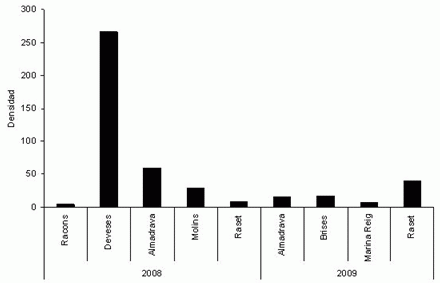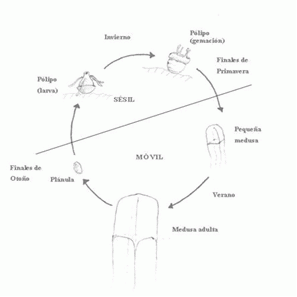
Background information regarding Carybdea marsupialis in the Mediterranean Spanish coast
Carybdea marsupialis is a cubozoan species that could be found in the coastal waters of Mediterranean, normally as individuals or in low number. However during summer 2008 and 2009, abnormally high densities of this inconspicuous box jellyfish were detected in the spanish coast.
Carybdea marsupialis is a box jellyfish species that has been found in some occasions in waters of Mediterranean Spanish coasts, normally as individuals or in low numbers. Some authors also detected these jellyfish along the Italian coast, specifically the Adriatic and North East coastlines. However during summers 2008 and 2009, withabnormally high densities of this species were detected in some Denia beaches.
High frequencies of jellyfish stings were reported by Red Cross at Raset Beach (located to the north of Denia harbour) during summer 2008 and this study emerged in response to these reports. The Red Cross provided assistance to more than 2,500 people. This elevated number of stings had never been registered before, which suggested a demographic explosion of this species. That was confirmed after using quantitative sampling with hand nets.

In 2008 and 2009 samplings were organised in Denia to capture Carybdea marsupialis adults, which are present during the summer - autumn season, at least until the middle of November, when they disappear.
From the studies undertaken in 2008 (Bordehore et al, 2011) and 2009, the data obteined indicate that there are many factors that could be responsible for this atypical abundance of box jellyfish. Some of the variables that may influence the population dynamics of this species could be temperature, precipitations, zooplankton densities and absence of predators.








